Home

Out-of-the-box ETL, easy to learn, and a pleasure to use!
What is Meerschaum?
Meerschaum is a platform for quickly creating and managing time-series data streams called pipes. With Meerschaum, you can have a data visualization stack running in minutes.
Why Meerschaum?
Two words: Incremental updates. Fetch the data you need, and Meerschaum will handle the rest.
If you've worked with time-series data, you know the headaches that come with ETL. Meerschaum is a system that makes consolidating and syncing data easy.
Meerschaum instead gives you better tools to define and sync your data streams. And don't worry — you can always incorporate Meerschaum into your existing systems.
✨ Features
Organize ETL Processes into Pipes
Meerschaum Pipes are parametrized ETL processes that are tagged and organized into hierarchies to make scaling up a breeze.
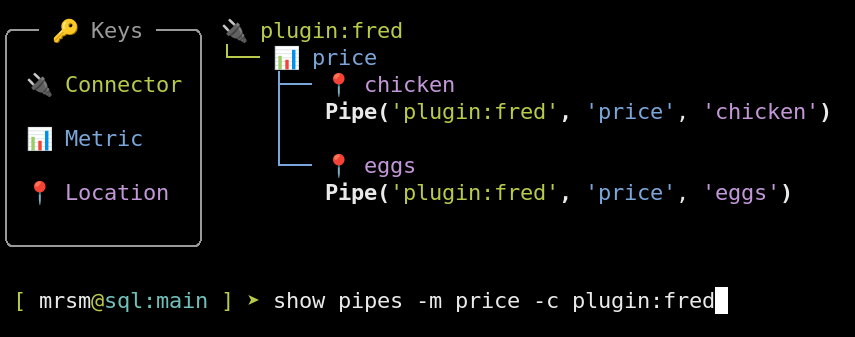
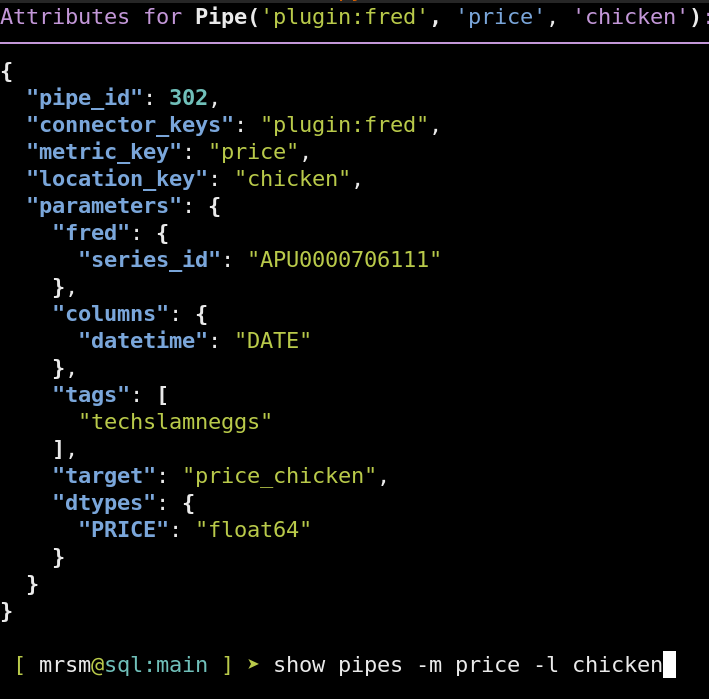
Robust Plugin System
Plugins make it easy to ingest any data source, add functionality to Meerschaum, and organize your utility scripts.
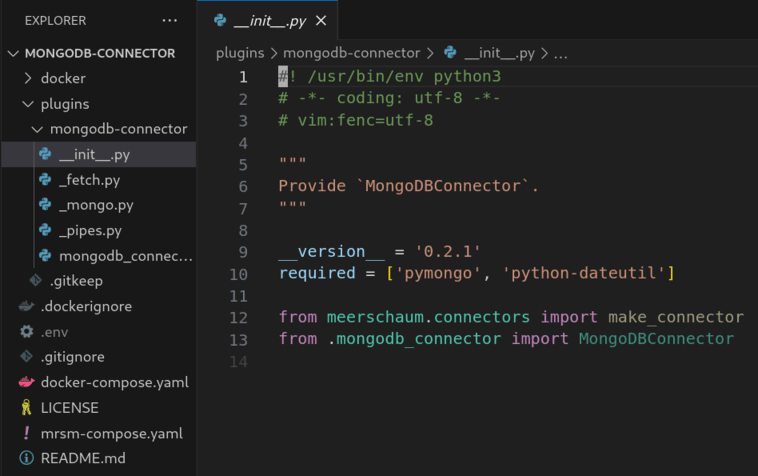
Clean Connector Management
Define your connectors at any level: through the CLI, in your environment, or dynamically.
1 2 3 4 5 6 7 8 9 | |
1 2 3 | |
Design, Develop, and Deploy with Meerschaum Compose
The compose workflow allows you to iterate with and version-control your pipes, making collaboration and maintainability much smoother.
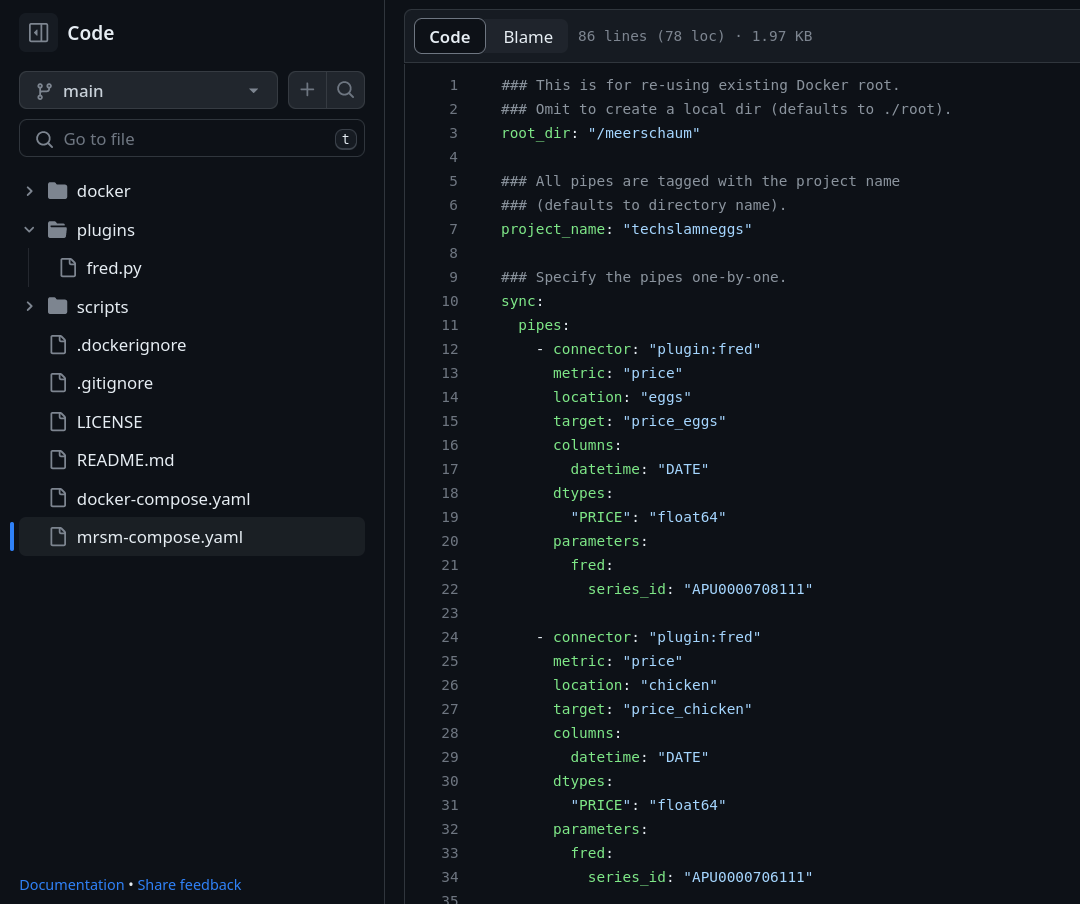
Performant SQL Transformations
SQL pipes with the same instance and source connector are synced in-place ― deltas are resolved entirely through SQL and nothing is loaded into RAM.
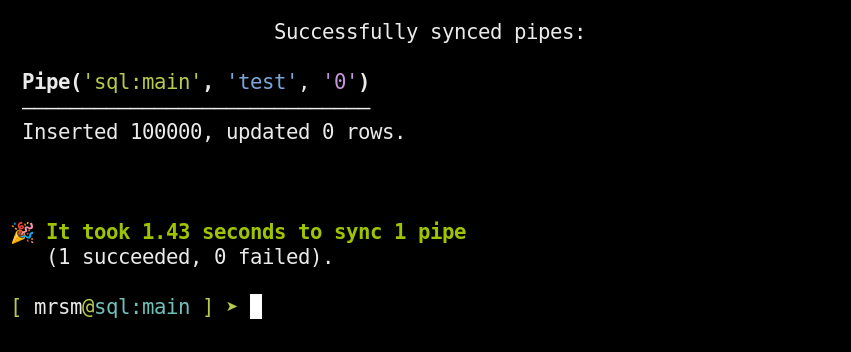
Concurrency at its Finest
Maximize your throughput by syncing multiple pipes in parallel.
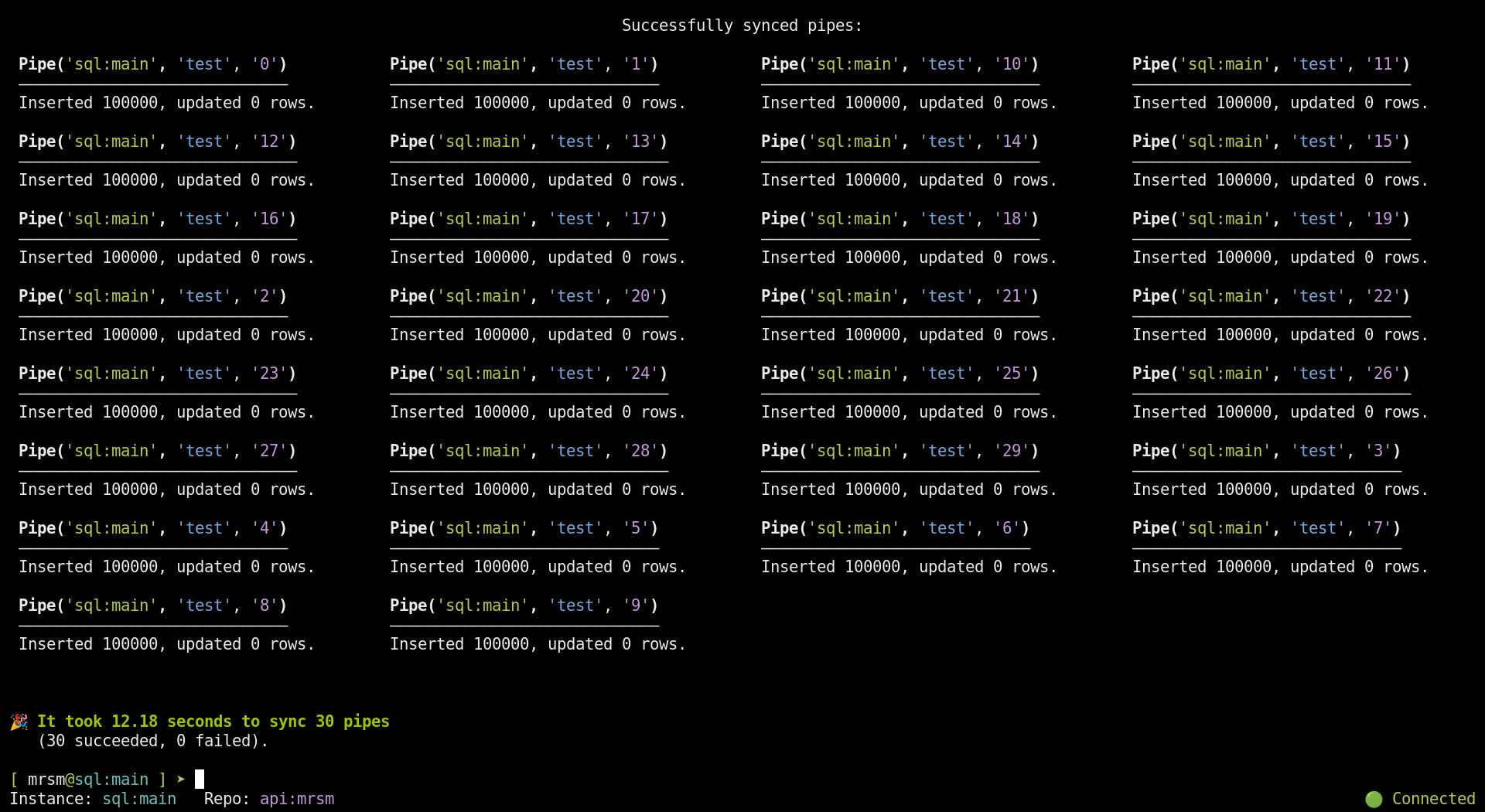
Elegant Chunking
Calm your out-of-memory fears with automatic, parallelized chunking.
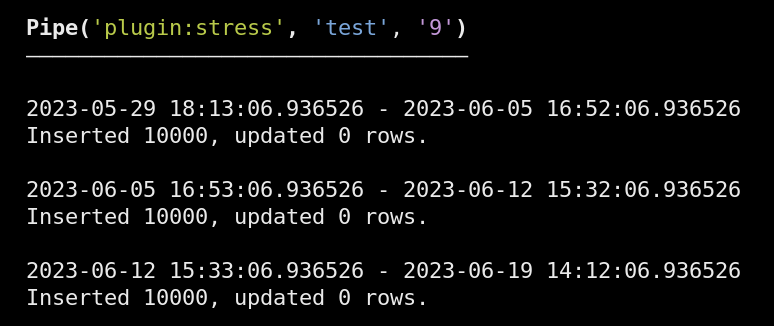
Simple-Yet-Powerful API
Want to use Meerschaum in your code? Check out the package documentation!1 2 3 4 5 6 7 8 9 10 11 12 13 14 15 16 17 18 19 20 21 22 23 24 25 | |
Extensible Connectors Interface
Add custom connector types with the@make_connector decorator.
1 2 3 4 5 6 7 8 9 10 11 12 13 14 15 16 17 18 19 20 21 22 23 24 25 26 27 28 29 30 31 32 33 34 | |
Video Tutorials
Support the Project
I work on Meerschaum in my free time, so if you enjoy the project and want to support its development, feel free to buy me a coffee! You can also support the project on my GitHub Sponsors page.
Consulting Services
If you're looking to recruit my skills, you can hire my consulting services. Reach out on LinkedIn to get in touch, or you can commission my help at my GitHub Sponsors page.